[Anchor]
Today (May 21), we will take a look at the artificial intelligence pledges that all presidential candidates are focusing on.
Some candidates have promised to invest 100 trillion won in the field of artificial intelligence, but is that enough to become a powerhouse in AI? Reporter Park Jin-soo analyzes.
[Report]
The presidential candidates see artificial intelligence, AI, as a future growth engine.
This is because it is a tool that can change the landscape of future industries.
An AI research lab at a university.
Information is fed into the AI, and its learning progress is monitored afterward.
[Park Chan-ho/Researcher, Department of Computer Science, Korea University: "We check the logs here to see if the model or experiment we ran the previous evening is progressing properly..."]
The experiments conducted overnight are performed by graphics processing units, GPUs.
The price for each is around 40 to 50 million won.
The number of GPUs secured indicates research competitiveness.
Research and development personnel, infrastructure such as power networks to operate these devices, and data for AI learning are also essential elements for the success of the AI industry.
Candidates Lee Jae-myung and Kim Moon-soo have both pledged to invest 100 trillion won to make South Korea one of the top three AI powerhouses in the world.
[Choi Byung-ho/Professor, AI Researcher, Korea University: "You need land, water, and GPUs. This is just a few trillion without doing anything."]
The core elements of AI, including infrastructure, equipment, talent, and data, are the focus of the candidates' pledges.
Candidate Lee Jae-myung emphasizes the introduction of 50,000 GPUs and the development of Korean-style AI services based on domestic data.
Candidate Kim Moon-soo promises to nurture 200,000 young AI talents and expand the share of nuclear power to enhance the AI power grid.
Candidate Lee Jun-seok proposes the introduction of pensions and the establishment of standards related to data copyright, while candidate Kwon Young-guk emphasizes the need for regulations regarding data security.
However, there are many challenges to overcome in reality.
The introduction of GPUs, which are exclusively supplied by the American company NVIDIA, is not an easy task.
There is also no clear plan for who will train talents and what will be taught.
[Choi Byung-ho/Professor, AI Researcher, Korea University: "You have to buy them at the right time. So it’s confusing whether this is diplomacy or politics. In AI research, which direction should we go? There needs to be a curriculum. This is really difficult."]
The proposal for 'pensions' may lead to controversy over the criteria for subscribers.
The issue of data openness for AI learning must first reach a social consensus.
[Lee Kyung-seok/KBS Pledge Verification Advisory Group/Professor, Incheon University: "It’s a matter of how much consensus is formed among the public regarding the leakage of personal information for public interest and whether the people support it..."]
Currently, our AI competitiveness is significantly lagging behind the United States and China.
There are suggestions that targeting niche areas that the U.S. and China have not yet dominated would be an effective strategy for leapfrogging into an AI powerhouse.
This is KBS News, Park Jin-soo.
Today (May 21), we will take a look at the artificial intelligence pledges that all presidential candidates are focusing on.
Some candidates have promised to invest 100 trillion won in the field of artificial intelligence, but is that enough to become a powerhouse in AI? Reporter Park Jin-soo analyzes.
[Report]
The presidential candidates see artificial intelligence, AI, as a future growth engine.
This is because it is a tool that can change the landscape of future industries.
An AI research lab at a university.
Information is fed into the AI, and its learning progress is monitored afterward.
[Park Chan-ho/Researcher, Department of Computer Science, Korea University: "We check the logs here to see if the model or experiment we ran the previous evening is progressing properly..."]
The experiments conducted overnight are performed by graphics processing units, GPUs.
The price for each is around 40 to 50 million won.
The number of GPUs secured indicates research competitiveness.
Research and development personnel, infrastructure such as power networks to operate these devices, and data for AI learning are also essential elements for the success of the AI industry.
Candidates Lee Jae-myung and Kim Moon-soo have both pledged to invest 100 trillion won to make South Korea one of the top three AI powerhouses in the world.
[Choi Byung-ho/Professor, AI Researcher, Korea University: "You need land, water, and GPUs. This is just a few trillion without doing anything."]
The core elements of AI, including infrastructure, equipment, talent, and data, are the focus of the candidates' pledges.
Candidate Lee Jae-myung emphasizes the introduction of 50,000 GPUs and the development of Korean-style AI services based on domestic data.
Candidate Kim Moon-soo promises to nurture 200,000 young AI talents and expand the share of nuclear power to enhance the AI power grid.
Candidate Lee Jun-seok proposes the introduction of pensions and the establishment of standards related to data copyright, while candidate Kwon Young-guk emphasizes the need for regulations regarding data security.
However, there are many challenges to overcome in reality.
The introduction of GPUs, which are exclusively supplied by the American company NVIDIA, is not an easy task.
There is also no clear plan for who will train talents and what will be taught.
[Choi Byung-ho/Professor, AI Researcher, Korea University: "You have to buy them at the right time. So it’s confusing whether this is diplomacy or politics. In AI research, which direction should we go? There needs to be a curriculum. This is really difficult."]
The proposal for 'pensions' may lead to controversy over the criteria for subscribers.
The issue of data openness for AI learning must first reach a social consensus.
[Lee Kyung-seok/KBS Pledge Verification Advisory Group/Professor, Incheon University: "It’s a matter of how much consensus is formed among the public regarding the leakage of personal information for public interest and whether the people support it..."]
Currently, our AI competitiveness is significantly lagging behind the United States and China.
There are suggestions that targeting niche areas that the U.S. and China have not yet dominated would be an effective strategy for leapfrogging into an AI powerhouse.
This is KBS News, Park Jin-soo.
■ 제보하기
▷ 카카오톡 : 'KBS제보' 검색, 채널 추가
▷ 전화 : 02-781-1234, 4444
▷ 이메일 : kbs1234@kbs.co.kr
▷ 유튜브, 네이버, 카카오에서도 KBS뉴스를 구독해주세요!
- Candidates’ AI pledges reviewed
-
- 입력 2025-05-22 01:37:41
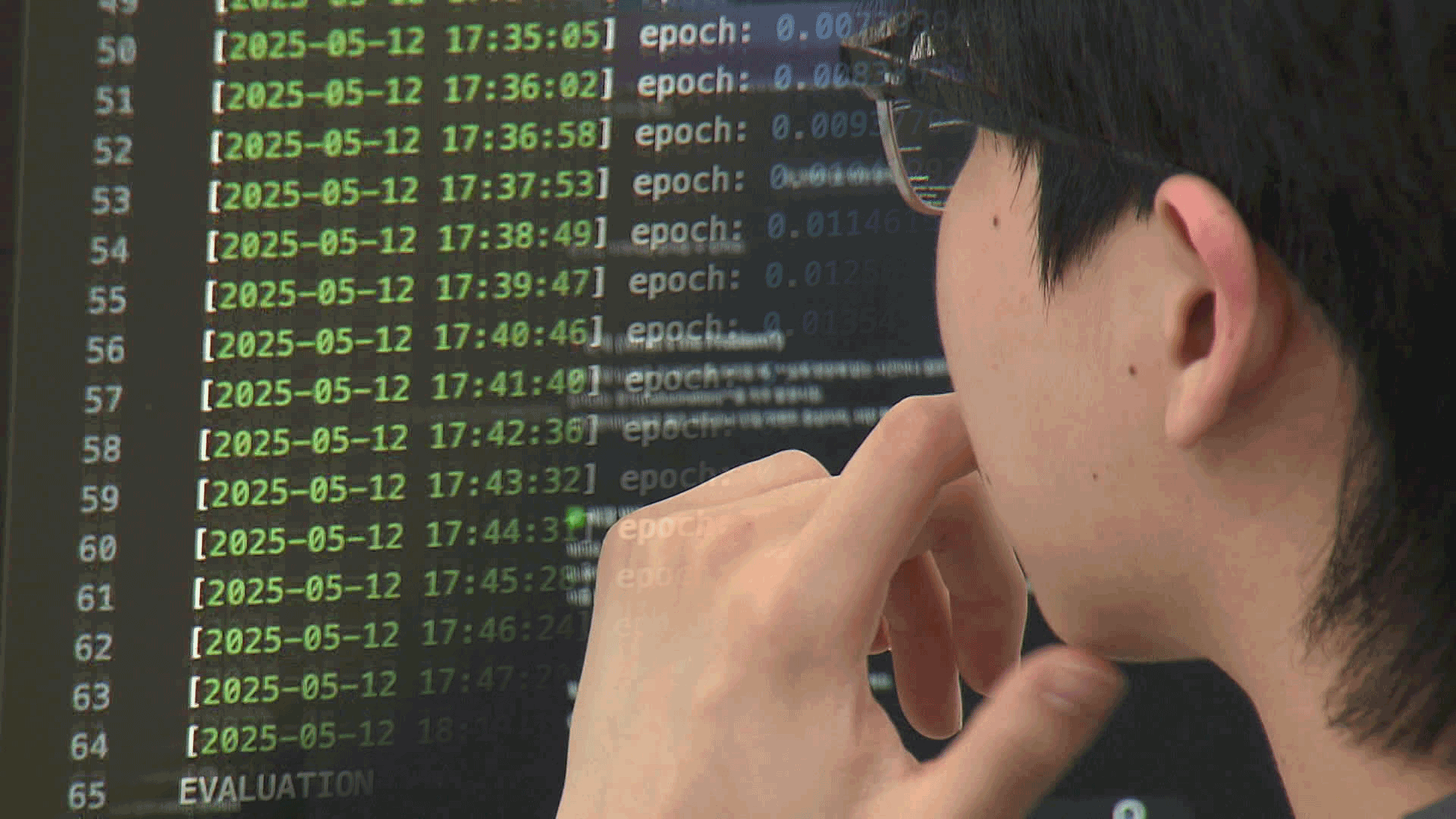
[Anchor]
Today (May 21), we will take a look at the artificial intelligence pledges that all presidential candidates are focusing on.
Some candidates have promised to invest 100 trillion won in the field of artificial intelligence, but is that enough to become a powerhouse in AI? Reporter Park Jin-soo analyzes.
[Report]
The presidential candidates see artificial intelligence, AI, as a future growth engine.
This is because it is a tool that can change the landscape of future industries.
An AI research lab at a university.
Information is fed into the AI, and its learning progress is monitored afterward.
[Park Chan-ho/Researcher, Department of Computer Science, Korea University: "We check the logs here to see if the model or experiment we ran the previous evening is progressing properly..."]
The experiments conducted overnight are performed by graphics processing units, GPUs.
The price for each is around 40 to 50 million won.
The number of GPUs secured indicates research competitiveness.
Research and development personnel, infrastructure such as power networks to operate these devices, and data for AI learning are also essential elements for the success of the AI industry.
Candidates Lee Jae-myung and Kim Moon-soo have both pledged to invest 100 trillion won to make South Korea one of the top three AI powerhouses in the world.
[Choi Byung-ho/Professor, AI Researcher, Korea University: "You need land, water, and GPUs. This is just a few trillion without doing anything."]
The core elements of AI, including infrastructure, equipment, talent, and data, are the focus of the candidates' pledges.
Candidate Lee Jae-myung emphasizes the introduction of 50,000 GPUs and the development of Korean-style AI services based on domestic data.
Candidate Kim Moon-soo promises to nurture 200,000 young AI talents and expand the share of nuclear power to enhance the AI power grid.
Candidate Lee Jun-seok proposes the introduction of pensions and the establishment of standards related to data copyright, while candidate Kwon Young-guk emphasizes the need for regulations regarding data security.
However, there are many challenges to overcome in reality.
The introduction of GPUs, which are exclusively supplied by the American company NVIDIA, is not an easy task.
There is also no clear plan for who will train talents and what will be taught.
[Choi Byung-ho/Professor, AI Researcher, Korea University: "You have to buy them at the right time. So it’s confusing whether this is diplomacy or politics. In AI research, which direction should we go? There needs to be a curriculum. This is really difficult."]
The proposal for 'pensions' may lead to controversy over the criteria for subscribers.
The issue of data openness for AI learning must first reach a social consensus.
[Lee Kyung-seok/KBS Pledge Verification Advisory Group/Professor, Incheon University: "It’s a matter of how much consensus is formed among the public regarding the leakage of personal information for public interest and whether the people support it..."]
Currently, our AI competitiveness is significantly lagging behind the United States and China.
There are suggestions that targeting niche areas that the U.S. and China have not yet dominated would be an effective strategy for leapfrogging into an AI powerhouse.
This is KBS News, Park Jin-soo.
Today (May 21), we will take a look at the artificial intelligence pledges that all presidential candidates are focusing on.
Some candidates have promised to invest 100 trillion won in the field of artificial intelligence, but is that enough to become a powerhouse in AI? Reporter Park Jin-soo analyzes.
[Report]
The presidential candidates see artificial intelligence, AI, as a future growth engine.
This is because it is a tool that can change the landscape of future industries.
An AI research lab at a university.
Information is fed into the AI, and its learning progress is monitored afterward.
[Park Chan-ho/Researcher, Department of Computer Science, Korea University: "We check the logs here to see if the model or experiment we ran the previous evening is progressing properly..."]
The experiments conducted overnight are performed by graphics processing units, GPUs.
The price for each is around 40 to 50 million won.
The number of GPUs secured indicates research competitiveness.
Research and development personnel, infrastructure such as power networks to operate these devices, and data for AI learning are also essential elements for the success of the AI industry.
Candidates Lee Jae-myung and Kim Moon-soo have both pledged to invest 100 trillion won to make South Korea one of the top three AI powerhouses in the world.
[Choi Byung-ho/Professor, AI Researcher, Korea University: "You need land, water, and GPUs. This is just a few trillion without doing anything."]
The core elements of AI, including infrastructure, equipment, talent, and data, are the focus of the candidates' pledges.
Candidate Lee Jae-myung emphasizes the introduction of 50,000 GPUs and the development of Korean-style AI services based on domestic data.
Candidate Kim Moon-soo promises to nurture 200,000 young AI talents and expand the share of nuclear power to enhance the AI power grid.
Candidate Lee Jun-seok proposes the introduction of pensions and the establishment of standards related to data copyright, while candidate Kwon Young-guk emphasizes the need for regulations regarding data security.
However, there are many challenges to overcome in reality.
The introduction of GPUs, which are exclusively supplied by the American company NVIDIA, is not an easy task.
There is also no clear plan for who will train talents and what will be taught.
[Choi Byung-ho/Professor, AI Researcher, Korea University: "You have to buy them at the right time. So it’s confusing whether this is diplomacy or politics. In AI research, which direction should we go? There needs to be a curriculum. This is really difficult."]
The proposal for 'pensions' may lead to controversy over the criteria for subscribers.
The issue of data openness for AI learning must first reach a social consensus.
[Lee Kyung-seok/KBS Pledge Verification Advisory Group/Professor, Incheon University: "It’s a matter of how much consensus is formed among the public regarding the leakage of personal information for public interest and whether the people support it..."]
Currently, our AI competitiveness is significantly lagging behind the United States and China.
There are suggestions that targeting niche areas that the U.S. and China have not yet dominated would be an effective strategy for leapfrogging into an AI powerhouse.
This is KBS News, Park Jin-soo.
-
-
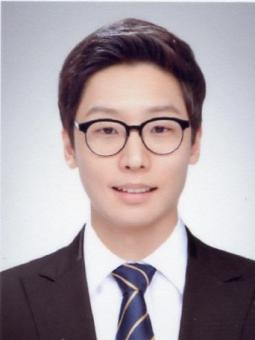
박진수 기자 realwater@kbs.co.kr
박진수 기자의 기사 모음
-
이 기사가 좋으셨다면
-
좋아요
0
-
응원해요
0
-
후속 원해요
0










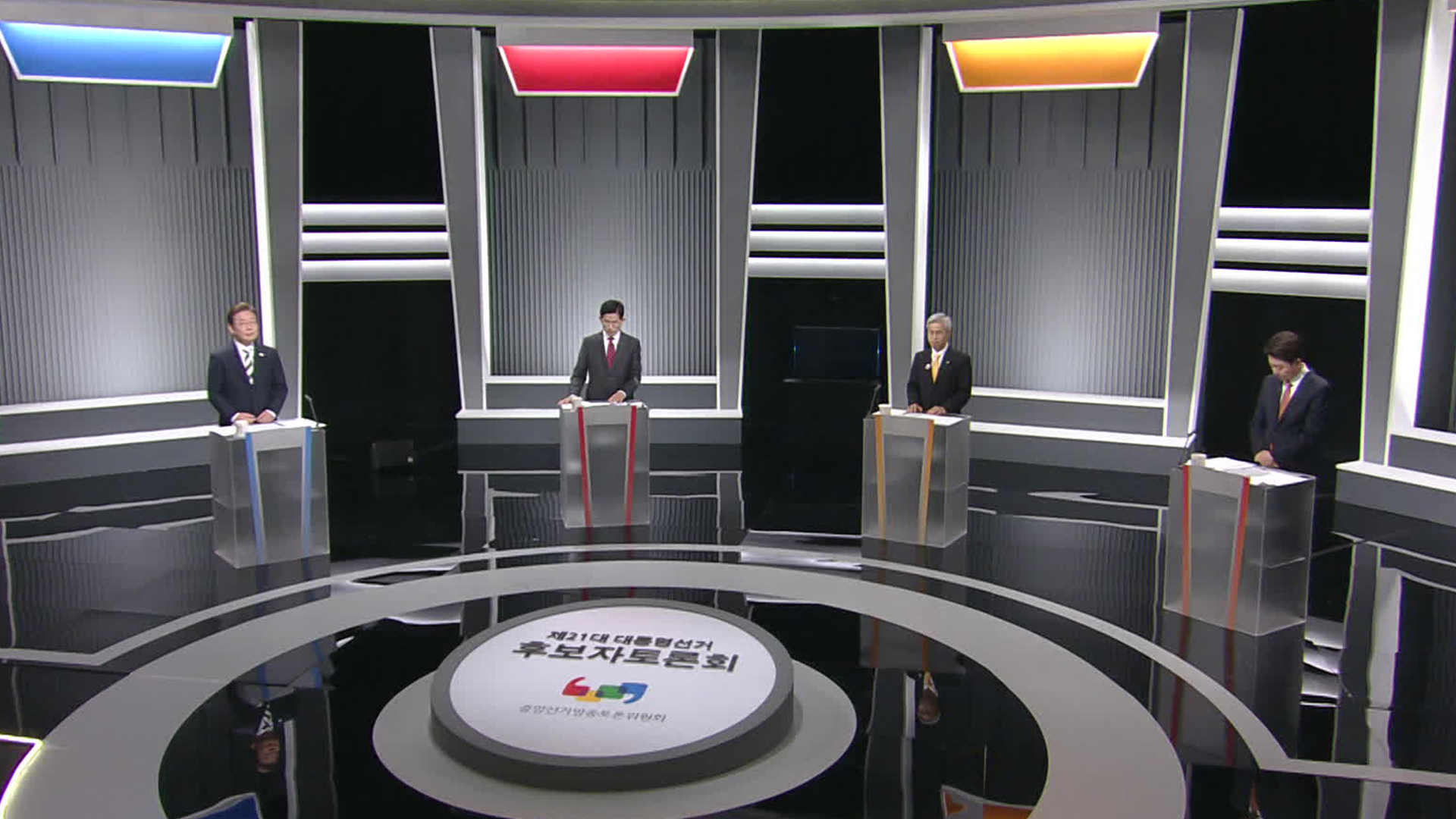

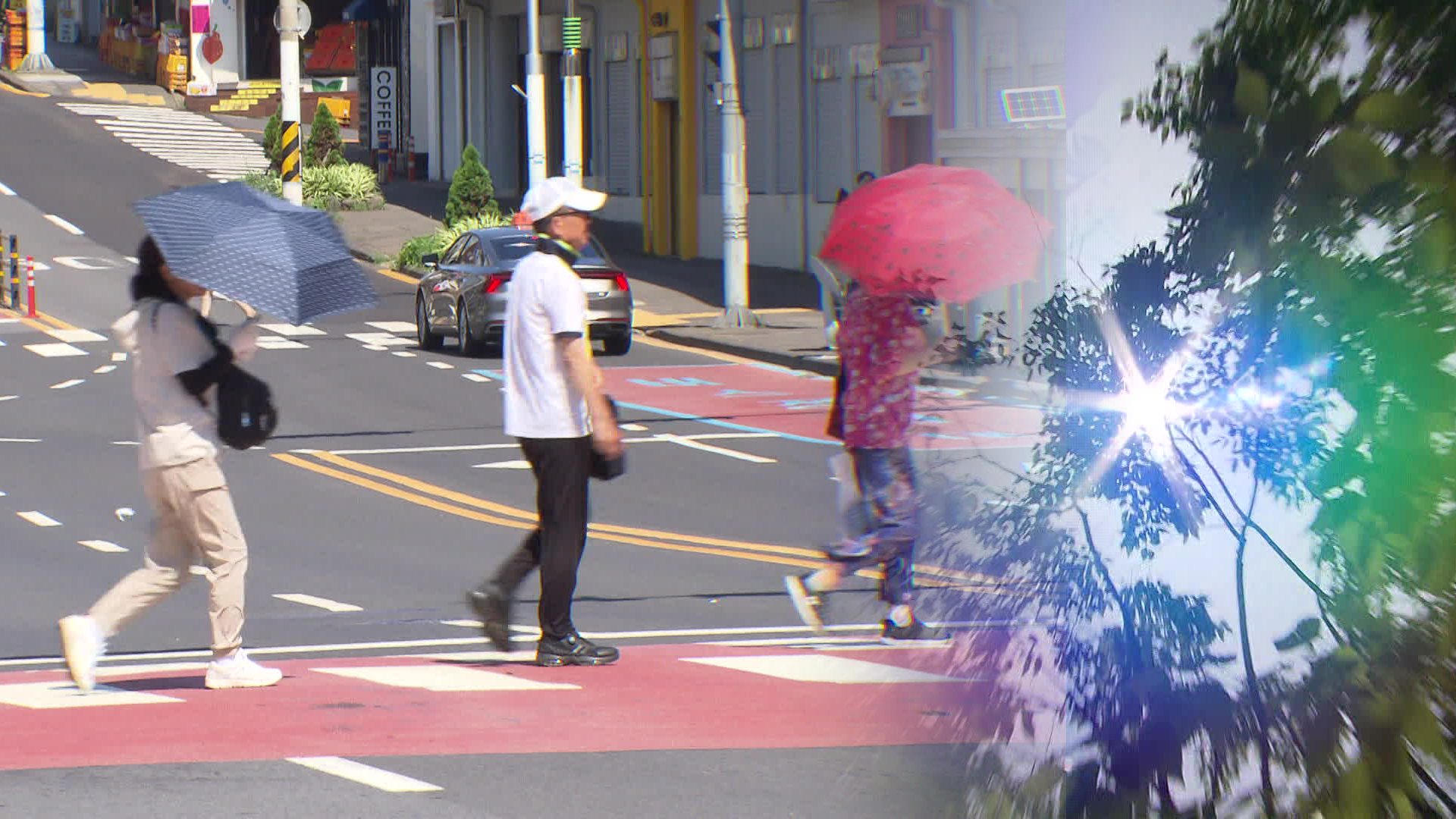
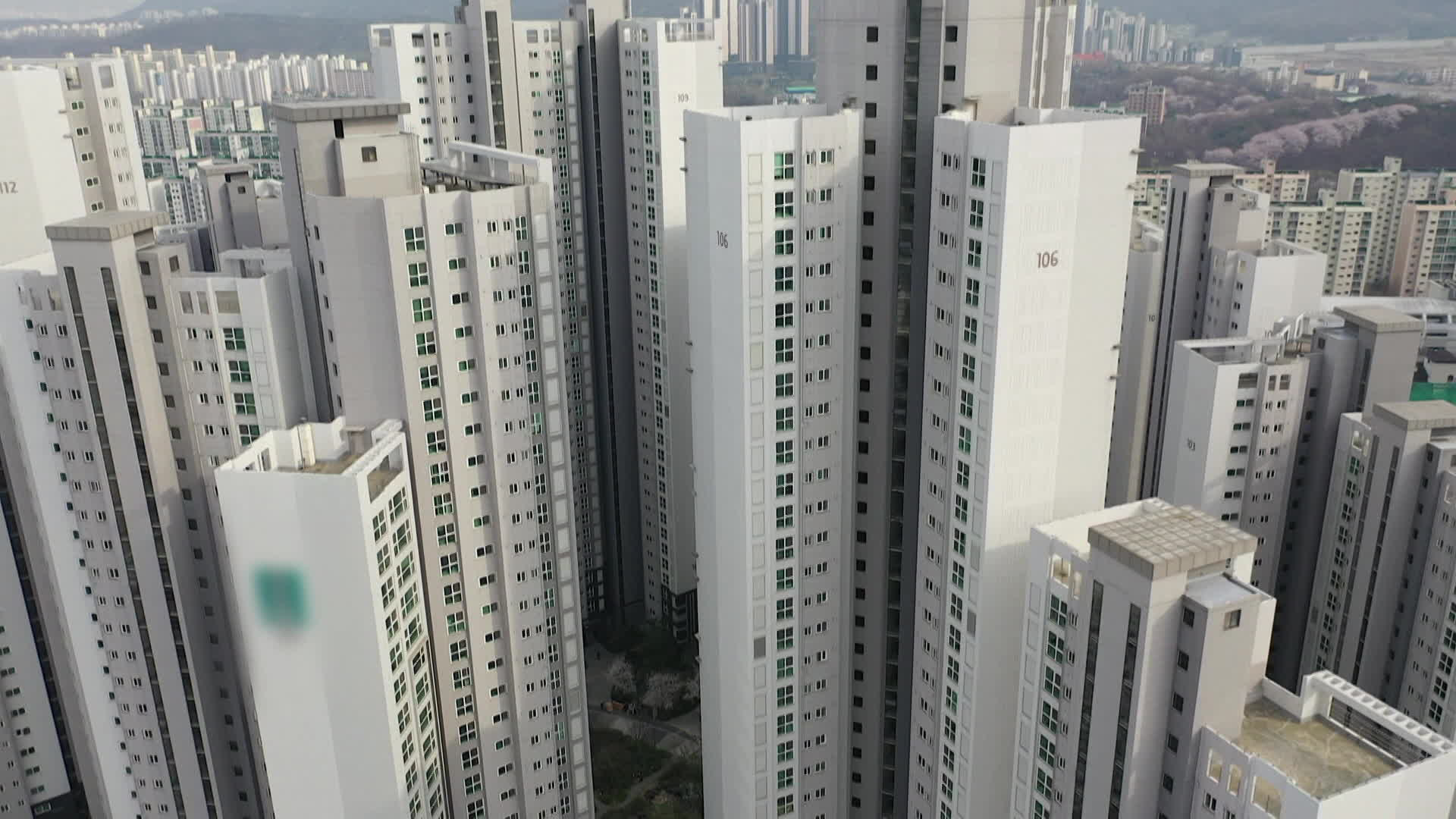

이 기사에 대한 의견을 남겨주세요.